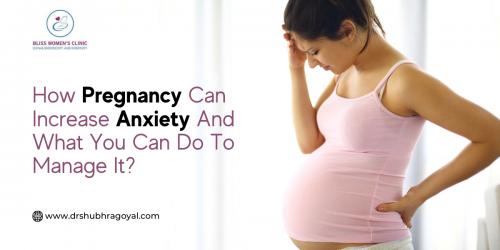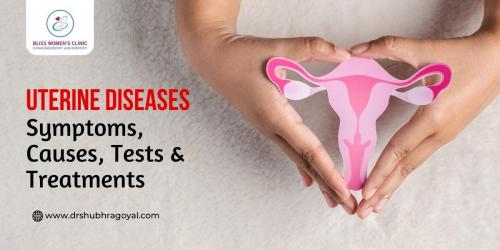A Menopausal Ovarian Cyst: What Is It
After reaching menopause, the most common issue faced by women is an ovarian cyst. Though most of the time this condition can seem harmless, it has the potential to cause severe complications. At some point, ovarian cysts may even lead to cancer!
Ovarian cysts are fluid-filled sacs that develop on or inside the ovaries. Your body can experience ovarian cysts before menopause as the ovaries are most active during that period. Before menopause, women generally suffer from the basic kinds like corpus luteum cysts and follicular cysts.
But, when your ovaries are no longer capable of releasing eggs, the prominent types of ovarian cysts after menopause can be dermoids and cystadenomas. Let’s dive in to see the details about the symptoms, risk factors, and everything that you need to know if you are suffering from an ovarian cyst!
Important Aspects to Know About Ovarian Cyst
Are you in your post-menopausal period? Well, then it becomes highly important for you to learn about ovarian cysts during menopause and their related symptoms so that it gets possible for you to adopt all the necessary precautions.
Though the health conditions and circumstances are different for everyone, there is some basic information that can help you identify ovarian cysts. Besides this, if you are doubtful about having the same, consulting with a health expert would be the best option to opt for.
Symptoms Of Post-Menopausal Ovarian Cysts
Are you wondering what the symptoms of ovarian cysts are after menopause? The conditions may differ from person to person, but there are certain common symptoms that you need to learn to identify the development of this issue. The symptoms that will help you in figuring out the growth of an ovarian cyst include:
· Weight gain
· Swelling or bloating
· An ache in the thighs or lower back
· Bowel or bladder issues
· Bleeding and spotting
However, the symptoms that you may find before menopause are:
· Spotting between periods
· Excessive pain during menstrual cycles
· Tenderness of breasts
What Are the Risk Factors and Different Causes of Ovarian Cysts?
Do you want to know as well what percentage of post-menopausal ovarian cysts are cancerous? Though the numbers are not definite, women who are suffering from post-menopausal ovarian cysts are at higher risk of getting suffered from cancer! And, this fact makes it important that you do not ignore the symptoms and take necessary steps accordingly.
Some of the major causes of ovarian cysts are:
· Endometriosis
· Pelvic infections spreading to the fallopian tubes and ovaries
· Hormonal fluctuations
· Cigarette smoking
· PCOS or Polycystic ovary syndrome
Diagnosis Of the Menopausal Ovarian Cyst
If you are witnessing these symptoms that feel like ovarian cysts, it is better to seek medical help. The doctor will most probably refer you for a pelvic examination to check out the cysts and other issues. These tests will help in ruling it the possibilities of other health conditions with similar symptoms like appendicitis, IBS, pelvic inflammatory disease, or diverticulitis!
Apart from these, you will be asked about your health history so that things get clearer. This will also help in figuring out the factors that can increase the probability of ovarian cancer! These factors can be:
· Personal history of breast, uterus, endometrium, or colon cancer
· If you test positive for BRCA1 or BRCA2 gene mutations
· Ovarian cancer among close family members
The tests that include in the diagnosis of an ovarian cyst are:
· Imaging test
The test that is recommended after your symptoms and other conditions match with that of ovarian cysts is an imaging test. Here, the true picture of the cysts will be reflected and doctors will be ensured about its location, size, and its state. There are usually two types of ultrasound that is carried out to know the position of your cyst, the abdominal and transvaginal!
· Other test
If your cyst comes out to be solid, which is of complex form, will include some more tests, as it may end up being ovarian cancer! Here, you may be advised for a blood test to measure the protein named CA-125.
Treatment Of Post-Menopause Ovarian Cysts
Most of the time cysts seem harmless and so it does not require full treatment. Though this is not the same in all cases, constant monitoring reduces the risks of severe conditions, like cancer!
If you are wondering how to get rid of ovarian cysts after menopause, check out the common treatment approaches for the same!
· Benign
If your cysts look simple and harmless along with a normal level of CA-125, doctors will generally ask you to wait and will include certain tests to monitor the same. These may include physical checks and imaging tests at regular periods or other CA-125 tests to make things clear. However, if the pain and other unpleasant symptoms continue even after the wait approach, you may be advised for a small surgery.
· Malignant
After menopause, you are more prone to ovarian cancer if you are already experiencing ovarian cysts! Now the question arises should ovarian cysts be removed after menopause? Well, if your CA-125 result comes out to be higher than the normal range, then your doctor will recommend the removal of the cysts, so that they can conduct tests for cancer.
Conclusion
Being a woman, you are always at the risk of ovarian cysts formation, and cases of this development are not rare after menopause as well! Though most of the times, cysts are harmless and fade away on their own, seeking help from a medical expert is better, particularly if you are in your menopause stage, to reduce the risks of ovarian cancer.
For any female health related concerns, you can always get in touch with Dr. Shubhra Goyal, a renowned gynecologist in Agra.
Visit: https://www.drshubhragoyal.com/services to read more about her specialization.





Comments